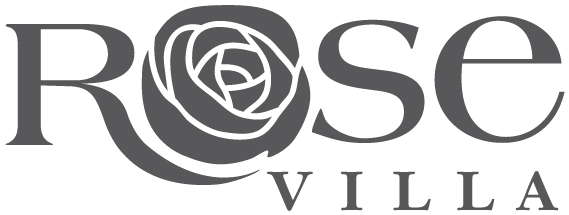Anatomy of the Rose Villa Bond Deal
| Community | Advice | ResidentsOn June 25, 2020, Rose Villa closed on its Phase 3 financing for $77,845,000. The bonds are tax-exempt bonds that were sold through the public securities market to build our Phase 3 project and to pay off the balance of the 2017 Phase 2 bonds.
Phase 3 is planned as the last significant phase of the campus redevelopment, with the goal to replace Madrona Grove. The previous two phases were completed to repair, replace and construct the physical infrastructure to support the campus; to provide the financial base to support the construction of Madrona Grove by adding a variety of new independent living homes; and to add amenities and common spaces desired by the community. Phase 3 provides a new, replacement Madrona Grove and additional common spaces and independent living.
There are many participants who supported the bond process. Rose Villa engaged and paid for them. This article, originally intended for the Rose Villa News, briefly describes the participants involved in the Phase 3 bond deal. Future articles will describe more about the structure of the bonds and the financial mechanics.
The Borrower
Rose Villa, Inc. is the borrower and has sole responsibility for the debt service on the bonds. The Rose Villa financing team included the Board of Directors, CEO Vassar Byrd, CFO Diane Gibson, and Craig Witz, our long-time development consultant. The planning for this project involved programming and design work from the entire Rose Villa management team, and hundreds of hours of financial modeling by the Rose Villa team.
We have borrowed with two previous bond issues with Phase 1 for $60,100,000 and Phase 2 for $27,500,000. There is $41,550,000 of debt remaining from these projects. A Master Trust Indenture was set up during the Phase 1 borrowing, which allows Rose Villa to borrow additional funds under the Indenture and is the vehicle for the additional borrowing.
Rose Villa is an unrated borrower. Because we are still finishing our redevelopment, we are considered too “new” to obtain a rating. Once Phase 3 is complete and stabilized, Rose Villa will seek an investment grade rating (which is typically BBB or higher). This will lower the cost of any future debt we may seek.
The Issuer
For 501(c)(3) entities to issue tax exempt bonds, the bonds must be issued through a conduit municipal issuer. For Phase 3 bonds, our issuer was the Hospital Facility Authority of Clackamas County (HFACC). The HFACC issues the bonds and loans the proceeds to Rose Villa as the conduit borrower. Rose Villa is solely responsible for paying the debt service on the bonds (meaning Clackamas County bears no risk for repayment). Because the HFACC was not available for the Phase 1 and Phase 2 borrowings, the issuer was the Public Finance Authority of Wisconsin.
The Underwriter
B.C. Ziegler and Company (Ziegler) is Rose Villa’s Underwriter/Placement Agent for the Phase 1, 2 and 3 bond issues.
The role of the underwriter includes both advising on viable structure and terms as well as purchasing the bonds and selling them to investors. Rose Villa and Ziegler work together to prepare the Preliminary Offering Statement (POS) which includes a description of the transaction, the Sources and Uses of the Borrowing, Appendix A (Rose Villa’s description of the project), and a variety of disclosures to the future bondholders about the transactions.
Ziegler utilizes the POS to market the bonds to investors. This process takes about one week. For Rose Villa this would normally include a day of investor site visits and tours, but because of COVID-19 we had to replace this with a live webinar, a virtual tour, and days of questions about anything and everything Rose Villa-related from potential investors.
At the end of the marketing period, the bond sale is held via an Internet bidding process. Of the almost $78 million available for Phase 3, there was just under $1 billion of bids. Ultimately, 30 institutional investors and one retail investor purchased the bonds. Every one of our investors from Phase 1 bought Phase 3 bonds, adding to their holdings. Because the bonds were “oversubscribed,” Ziegler negotiated lower interest rates of approximately .50% from the POS.
The Feasibility Consultant and CPA Firm
Moss Adams was engaged as the Phase 3 Feasibility Consultant. Their role is to perform procedures on the Rose Villa-prepared 5-year forecast and to issue an opinion on the financial feasibility of the project.
Hansen, Hunter and Company, PC, is Rose Villa’s audit firm. They were engaged to perform procedures to validate the financial representations made by Rose Villa in the POS. The audited financial statements are also included in the POS.
The Attorneys
There are many of them. They include Rose Villa’s counsel, Peter Stoloff, who represents us in the transaction, prepares the deed and title documents, reviews all documents, and supports us through the process. Bond counsel is Orrick, Herrington, and Sutcliffe, LLP, who is responsible for preparing the bond documents and providing a legal opinion on behalf of the issuer validating the
tax-exempt status of the bonds and representing the legal interest of the investors. Additional attorneys are engaged by Ziegler and the HFA (House Facility Authority) to represent their interests.
The Bond Trustee
Rose Villa’ s Bond Trustee is US Bank National Trust. The Trustee holds the bond proceeds. US Bank also ensures that we are meeting all our disclosure and reporting requirements that are defined in the bond documents. Post issuance compliance includes how the funds are spent and invested, how the built facilities are used, as well as a variety of ongoing disclosures.
The Investors
The Phase 3 bonds include 30 institutional investors and one retail investor. All but five of the investors were already holders of Rose Villa Phase 1 bonds. The top five investors include MFS Investment Management, Invesco Advisors, Alliance Bernstein, Putnam, and Eaton Vance. These investors typically hold our bonds in their high yield tax-exempt bond funds.

